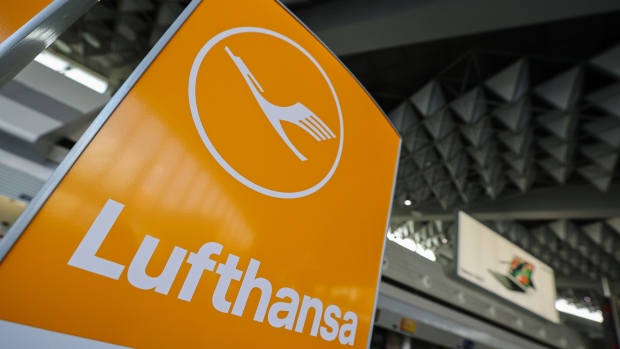Jun 2, 2021
Germany Weighs Taking Part in Lufthansa Capital Increase
, Bloomberg News

(Bloomberg) -- Germany is leaning toward participating in Deutsche Lufthansa AG’s pending capital increase, according to people familiar with the matter, a move that would boost the airline’s plan to refinance its 9 billion-euro ($11 billion) bailout package.
Subscribing to the rights offering would limit dilution of the government’s 20% shareholding, while increasing the fundraising plan’s chances of success, said the people, who asked not to be identified prior to a decision. Lufthansa is working with banks to raise about 3 billion euros ($3.7 billion) in equity, people familiar with the matter have said previously.
Proceeds will go toward paying down a 5.5 billion-euro “silent participation” that was part of the bailout, Lufthansa has said. The airline pays interest on the hybrid debt-equity security, with payments set to rise steeply in coming years. Refinancing the bailout package is an immediate priority for the company, executives have said.
Europe’s largest carrier received government support last year, after the coronavirus pandemic gutted air travel and damaged the finances of many of the industry’s largest players.
The plan to raise capital leaves the state with a decision: stand pat, letting its stake shrink before a recovery has been assured, or participate, giving the stock sale a boost at the risk of overstepping European Union limits on aid to the flag carrier. Lufthansa’s biggest private shareholder, the heirs of billionaire Heinz Hermann Thiele, last month sold down part of the family’s holding.
Read more: Late German Billionaire’s Heirs Unwind the Patriarch’s Last Deal
Government officials have insisted that the state should keep a significant investment in the airline while taxpayer cash is on the line. But the move would likely face opposition from Ireland’s Ryanair Holdings Plc, which has filed EU legal complaints against the bailout package.
Splitting the Difference
One option under consideration would see Germany sell off some of its subscription rights, then use those proceeds to purchase new shares, the people said.
While this would free taxpayers from committing more cash, the government’s holding in Lufthansa would shrink -- albeit to a lesser degree than if the government didn’t participate at all.
Another option is for the government to make use of more, if not all, of its subscription rights and spend up to 1 billion euros, the people said. The framework aid agreement allows for a rights offering that includes up to 1 billion euros contribution from the state if fully exercised.
A Lufthansa spokesman declined to comment. Representatives for the German finance ministry and the European Commission didn’t immediately respond to requests for comment.
EU Pressure
Aid to Lufthansa has come under scrutiny by the EU before. Der Spiegel reported in March that Margrethe Vestager, the bloc’s antitrust chief, threatened legal action against Germany after the company made an interest payment on a hybrid bond without informing the EU. The terms of EU approval for the bailout also included a ban on dividends.
The company said in May that it froze coupons on hybrid bonds to comply with EU rules.
Lufthansa continues to lose money as the coronavirus pandemic restricts global travel. The airline reduced its monthly cash drain to 235 million euros in the first quarter, and expects that figure to narrow to 200 million euros per month in the current period, helping it to a smaller operating loss than the 5.5 billion euros posted last year.
Executive pay and M&A activity at the airline is restricted until the government aid is repaid.
©2021 Bloomberg L.P.